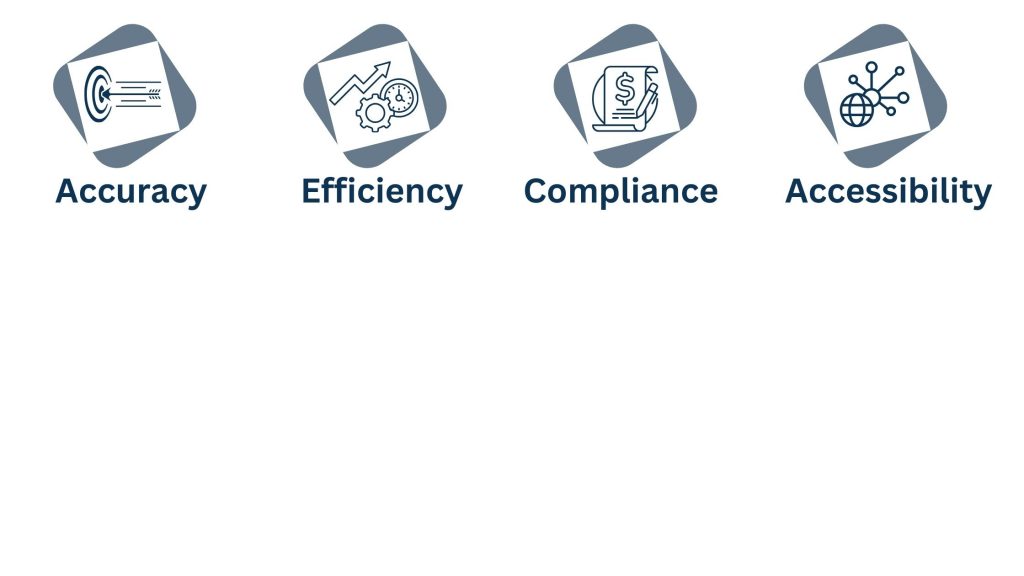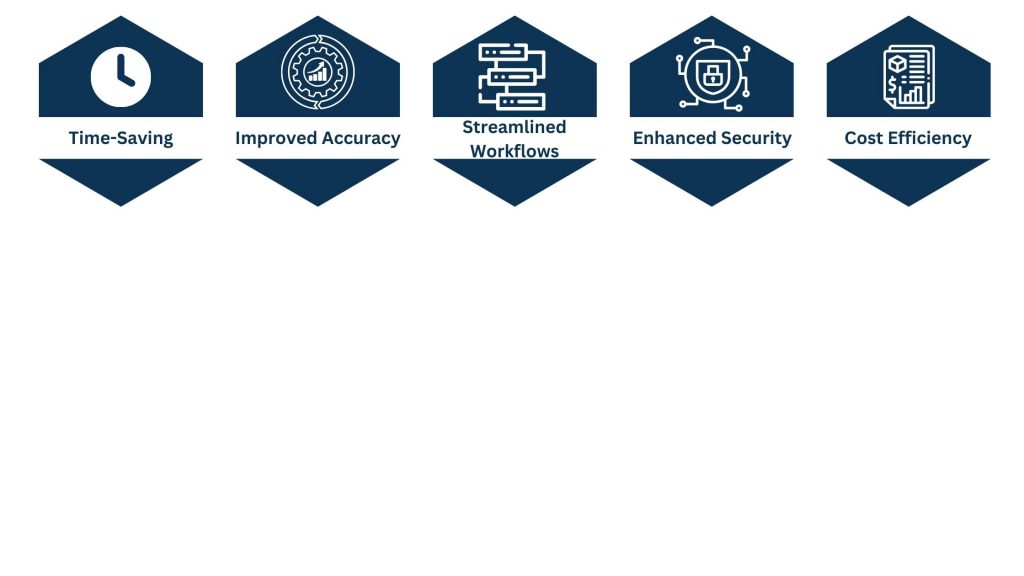Introduction
Information management is an integral part of the legal industry’s daily work and requires great accuracy and proper classification of client records, case files, and court documents so that workflows are conducted smoothly. Data entry for law firms represents a major role in organizing and storing vital information and providing access, thus allowing legal professionals to focus on advocating.
This blog shares insights into the importance of data entry for law firms, benefits, and best practices regarding the implementation of efficient data entry processes.
Why Data Entry is Crucial?
Law firms handle a huge data volume, often involving crucial and time-sensitive information. Effective data entry ensures critical information is systematically organized, accurate, and easily accessible.

Key reasons data entry is essential:
- Accuracy: Eliminating errors in legal documents to avoid future disputes or compliance issues.
- Efficiency: Data management saves the professionals’ time and enables legal professionals to concentrate on case strategies.
- Compliance: Proper record-keeping monitors legality and regulatory compliance.
- Accessibility: Well-organized data retrieving is easy and fast, improving response times for clients and cases.
Law firms stand the delay risks, mistakes, and inefficiencies when data entry is not accurate and efficient.
Types of Data Entry in Law Firms

Data entry for law firms covers a task range that assists in legal operations. These are the most common types:
1. Client Information Management
What it Involves: Recording client contact details, case histories, and communication logs.
Why It Matters: Guarantees complete and correct records of clients for current and future cases.
2. Document Preparation and Filing
What It Includes: Preparing and typing a legal document, including contracts, pleadings, or affidavits.
Why It Matters: There is uniformity and accuracy in preparing documents.
3. Case File Organization
What It Involves: Indexing case-related files, comprising evidence, transcripts, and exchange of communications.
Why It Matters: Makes all the relevant information for preparing a case available very quickly.
4. Time Tracking and Billing
What It Involves: Doing time logs, client invoices, and payment entries into billing systems.
Why It Matters: Ensures the accurate billing of clients and proper management of finances.
5. Compliance and Regulatory Data Entry
What It Involves: The recording and organizing of information as required to ensure all is for regulatory compliance.
Why It Matters: Evades penalties and maintains compliance with industry practices.
By managing these tasks efficiently, law firms can keep their operations running in order and smoothly.
Also Read: Virtual Assistant Services in Waterport
Advantages of Professional Data Entry for Law Firms
Data entry outsourcing or allocating staff for data entry provides several benefits that increase productivity and accuracy for law firms.

Advantages of data entry service:
- Time-Saving: Reduces administrative burden, so attorneys and staff can be free and focus on the legal work.
- Improved Accuracy: Professional data entry reduces potential errors in documentation and reduces litigation disputes.
- Streamlined Workflows: Internal data storage and organization help enhance collaboration and case management.
- Enhanced Security: Sensitive client and case information is handled securely and confidentially.
- Cost Efficiency: Outsourcing data entry reduces overhead costs of hiring and training internal staff.
By investing in professional data entry services, a law firm can perform more efficiently with high standards of accuracy and compliance.
Law Firm Best Practices for Data Entry
Law firms should implement best practices to optimize data entry to ensure accuracy, security, and efficiency.

- Specialized Software:
- Invest in legal practice management tools to integrate data entry, document management, and billing. Examples: Clio, PracticePanther, or MyCase.
- Data Accuracy:
- Verify entries for errors before their completion.
- Automate tools for finding and correcting inconsistencies.
- Staff Onboarding:
- Train staff for clear comprehension of the data entry process and use of legal vocabulary. It is crucial to include a full understanding of confidentiality and data security.
- Automate:
- Implement OCR technology to digitize paper documents and minimize manual data entry.
- Data Security Measures:
- Encrypt and safeguard access to sensitive client information through encrypted access protocols.
- Software and cybersecurity measures should be maintained up-to-date. Therefore, regular updates are a must.
- Auditing on Periodicals:
- Review data entry processes regularly to avoid inefficiencies or errors in the data entry process.
This way, the best practices guarantee reliable, secure, and effective data entry processes for a law firm.
Also Read: Virtual Assistant Services in Westside
Outsource Data Entry for Law Firms
Law firms prefer outsourcing data entry to enhance efficiency and save on costs. Here’s why:

Advantages of outsourcing data entry:
- Expertise: Trained professionals familiar with legal data requirements.
- Cost Savings: Avoids the recruitment, training, and retention cost of in-house employees.
- Scalability: It adjusts easily to fluctuating workloads during peaks.
- Productivity: Dedicated data entry providers can process enormous volumes of information in a shorter turnaround.
Law firms that manage vast amounts of sensitive client data, outsource data entry for a scalable, efficient, and cost-saving solution to ensure regulatory compliance.
Conclusion
Data entry for law firms helps manage legal operations with efficiency. From client records to billing and compliance, proper data entry ensures smooth workflows, reduces errors, and enhances overall productivity. Be it in-house data entry or outsourced to professionals, investing in robust data entry practices is the key to success in the legal fraternity.
Contact Tasks Expert today to implement best practices by using the right tools and resources to streamline activities, maintain compliance, and provide the best legal services.
About Us
Tasks Expert offers top-tier virtual assistant services from highly skilled professionals based in India. Our VAs handle a wide range of tasks, from part time personal assistant to specialized services like remote it support services, professional bookkeeping service etc. Furthermore, it helps businesses worldwide streamline operations and boost productivity.
Ready to elevate your business? Book a Call and let Tasks Expert take care of the rest.









